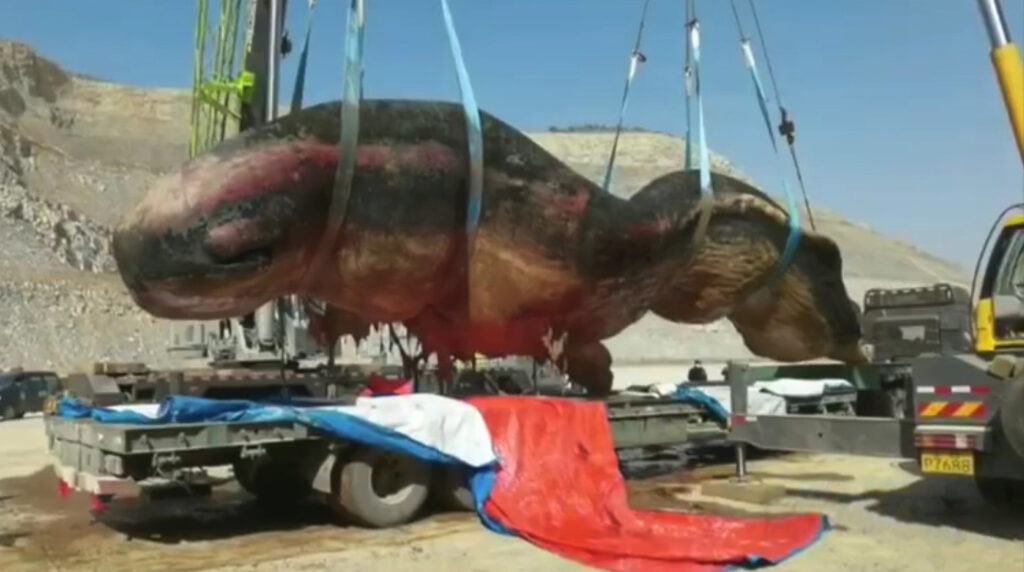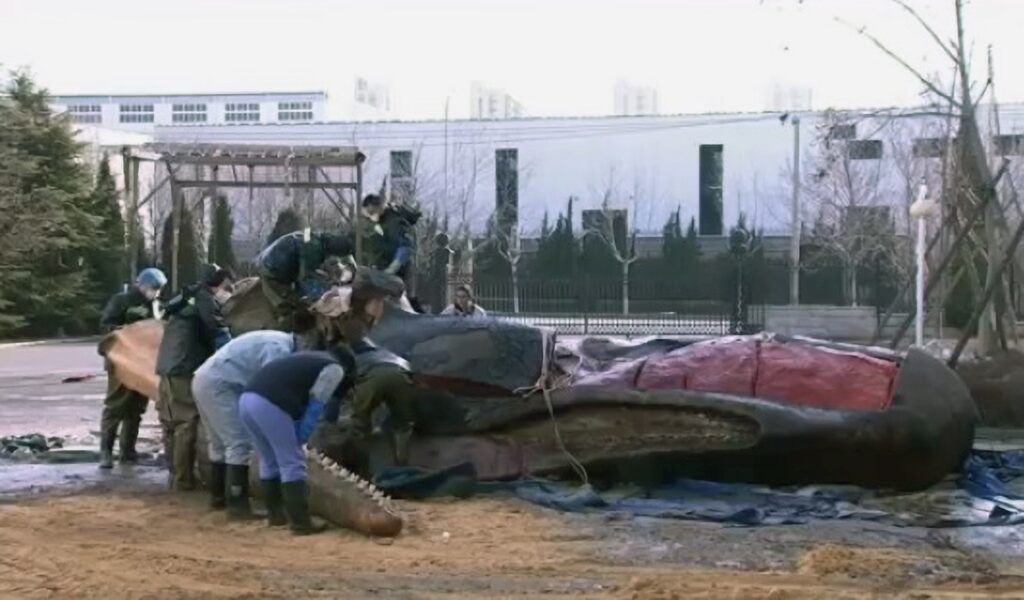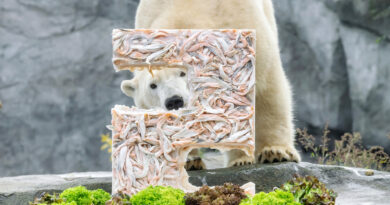Scientists To Spend Four Years Plasticizing Body Of 65-Tonne Sperm Whale
WARNING: GRAPHIC CONTENT
A massive 65-tonne sperm whale will be plasticised and preserved using technology pioneered by German Body World’s’ creator Gunther von Hagens in an ambitious project that will take four years to complete.
The 18-metres-long stranded sperm whale was found in the coastal waters of Bohai Sea of the Changxing Island in the city of Dalian located in the north-eastern Chinese province of Liaoning on 25th February.
Marine biology experts initially estimated it to be around 40 tonnes, but after it was salvaged ashore the adult male sperm whale turned out to be weighing in at a whopping 65 tonnes.

Due to the gigantic size of the animal it had to be moved by two cranes and forklifts.
The whale will be scientifically examined and then it will be bio-plasticised and the plasticised specimens will be publicly displayed in the Dalian Natural History Museum to popularize marine knowledge and promote marine culture.
It is expected that the project will be completed in more than four years given the size of the whale, which is going to be exhibited in its entirety for people to see.
Plastination is a technique developed by German Gunther von Hagens in 1977 that is now used to preserve bodies by replacing the fats with certain plastics. The plasticised specimen does not decay, can be touched, and looks very similar to what it was like when the organism was alive.

Sperm whales belong to the first-level protected animals, fishing them is prohibited and it is very rare to find stranded sperm whales for scientific research.
The director of the Anatomy Department of Dalian Medical University, Dr Sui Hongjin said the cause of death is unknown but it had to be removed from coastal waters so as not to contaminate the environment with its enormous carcass.
Dr Hongjin said: “There are many factors in the death of the sperm whales. At present, there is no obvious wound on the outside of this whale, so it is difficult to judge.”
“The death of the whale makes us feel sorry. We consider it a gift from nature and preserving it is important for us to understand the ocean. This mysterious deep-sea monster is of great significance to popularize marine science and biological knowledge.”



